Are we improving in choosing films, or was this an excellent year? Here is the menu we chose from: in 11 days, 245 feature films and 82 shorts. From 84 countries and regions. 51 first-time feature filmmakers
We walked out of two films, were bored by four others, and enthralled by so many more stories: this is September, and this is my school, after all. In ten days, we caught a whiff of the world’s woes, as told by superb storytellers. Capitalism isn’t working, say many of these artists. Suffering is universal and often endured in quiet devastation. So too, are family demons. We can clone humans, but we still can’t fix marriages. And we are in danger of forgetting our history.
Here were the stand-outs for me this year:
A Hidden Life
If ever a film waved a flag for cinema to resist the death toll brought on by streaming services, indeed it is this gorgeous gem by master magician Terence Malick, back in top form after a series of ineffective films. This is a long film, but so was World War Two. Malick, working here with a true story of a conscientious objector, Austrian farmer Franz Jägerstätter, has created a stunning religious poem — I’ve been going to TIFF for almost thirty years, and this is the first time I’ve spotted nuns in the audience. Utterly majestic, with an urgent message for contemporary culture, A Hidden Life will challenge some filmgoers. Primarily Malick is working with faith and the struggle to keep it in a time of great evil. This filmgoer fell in love at the start. Top marks for the best-looking film of the festival and indeed the entire year—it is all gasp-worthy— a majestic score and a pair of actors who made me believe in their love story. After screening forty festival films, I am still thinking about what is essentially the most heroic and urgent film I saw. It is not the only film dividing audiences at the festival but the most worthy. Look for it in theatres in mid-December.
Jojo Rabbit
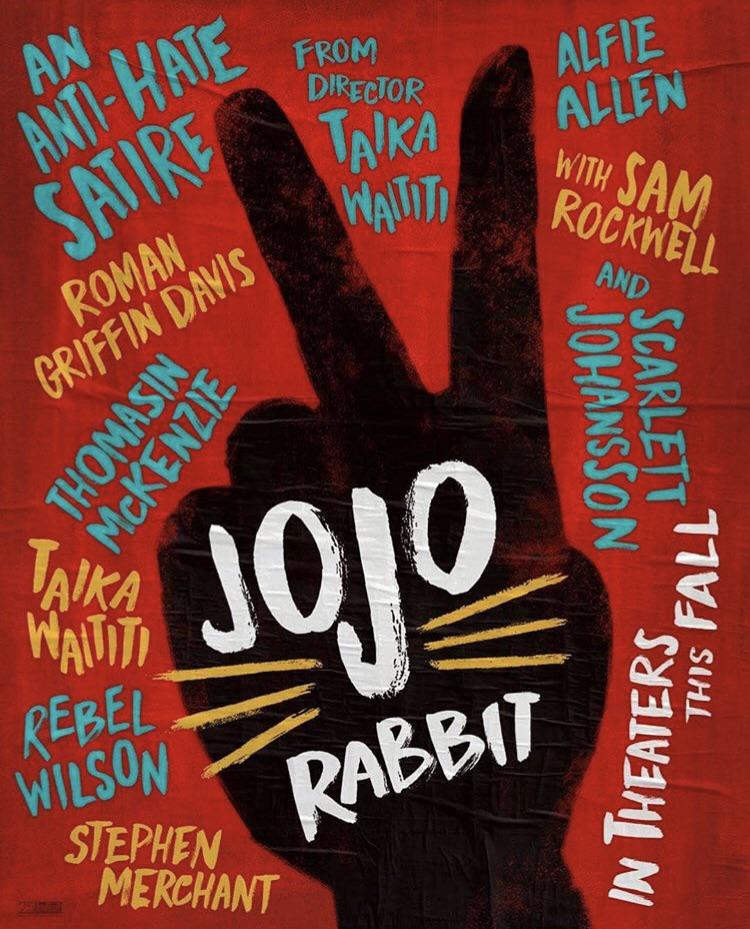
We are still in World War Two territory but this time, an abrupt turn in tone, with the zany dark satire of Jojo Rabbit. Despite dividing audiences and critics alike, (I met several in lineups who disliked it intensely), this film still managed to scoop the People’s Choice award on the festival’s final day, after the pedestrian choice of Green Book here last year, which comes as welcome news. New Zealand’s Taika Waititi, acting here as the writer, director as well as onscreen star, plays an idiotic version of Adolph Hitler, who is also an imaginary friend of a lonely German boy nicknamed Jojo Rabbit by bullies in his Hitler Youth camp. Sam Rockwell is in this film which immediately makes it worth looking at for this fangirl. Still, he is aided by solid performances of two youthful actors, Roman Griffth and Thomasin McKenzie (last seen in the excellent 2018 film, Leave No Trace). Jojo Rabbit attempts to balance sweet and silly, horror and comedy. The mocking works, if not as sharp as a recent stellar TIFF satire, Death of Stalin (2017). How anxious about the film’s reception are the folks behind this film? Check out the poster above, which spells out precisely the film’s intent: anti-hate. Waititi, who received a rapturous ovation at the screening I attended, told us that he pointedly made the film, likening our current climate to 1933.
We are in danger, again, of apathy.
Taika Waititi, director, Jojo Rabbit
The Painted Bird

Long and harrowing, this black-and-white film, another set in World War Two, was written, directed and produced by Czech Václev Marhoul, who adapted it from Jerzy Kosinski’s novel of the same name. Chosen as the Czech Republic’s entry for the 2020 Academy Awards, this was difficult to watch, like many at TIFF. Indeed, many didn’t, as the film experienced walkouts here in Toronto and at the Venice film festival, where it premiered. The journey of an unnamed boy in Nazi-occupied Central Europe is primarily one of brutality. Still, I’ve seen far more searing war imagery at TIFF in the past, including the excellent 2015 Hungarian film Son of Saul. Most films made in the last twenty years are far more violent. (Did people
So Long, My Son
Another long film, I cannot drink my usual water intake another day… Yet oh so worth it, for here is the story of how a married Chinese couple and their friends deal with the death of their only son. This story also reflects on the country’s one-child policy during the social and financial upheaval in the decades following the Cultural Revolution. Earlier this year, the film won two prominent acting awards at the Berlin film festival, with Wang Jingchun and Yong Mei winning the Silver Bear for Best Actor and Actress, respectively. Both are a reason alone to watch the film. Although the mixed timelines confused me, I fell in love with the group of actors who played out this excellent study of grief and guilt. The film is epic (spanning three decades) and deeply human. Director Wang Xiaoshuai told us at the film’s festival screening that this is the first in his “Homeland Trilogy,” I eagerly await the next installment.
Parasite
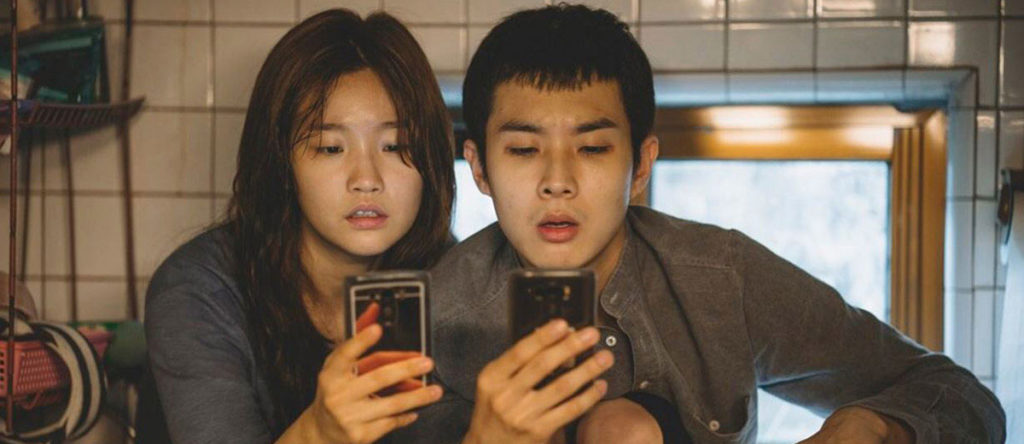
This wins my vote for best of the fest, if not by as large a margin as Roma was for me last year. When you see many films at once, you receive unwanted telegrams when watching, which is less about arrogance as it is purely experiential. Your inner checklist goes off: okay, here we are in a coming-of-age terrain, or perhaps a dry comedy (sadly, very rare at TIFF. The world only wept in 2019). The tone is frequently telegraphed early on, and still, you settle back to enjoy the unfolding of what you hope is a well-told tale. When a tone shifts, it rarely does so seamlessly: most filmmakers are clumsy when attempting such leaps. Not so South Korean master Bong Joon Ho. His feat here is so elegant you are stunned at what comes, changing expectations and affections as the master weaves a class war parable about an impoverished Seoul family who becomes entangled with the nouveau riche. Thrilling and unexpected, Parasite is as perfect and dark as they come. Parasite impressed the Cannes jury enough to win the top prize earlier this year. Expect marketers here to push it into Best Pic categories where it belongs rather than the foreign film slot. Parasite opens in Canada on October 25th.
Marriage Story
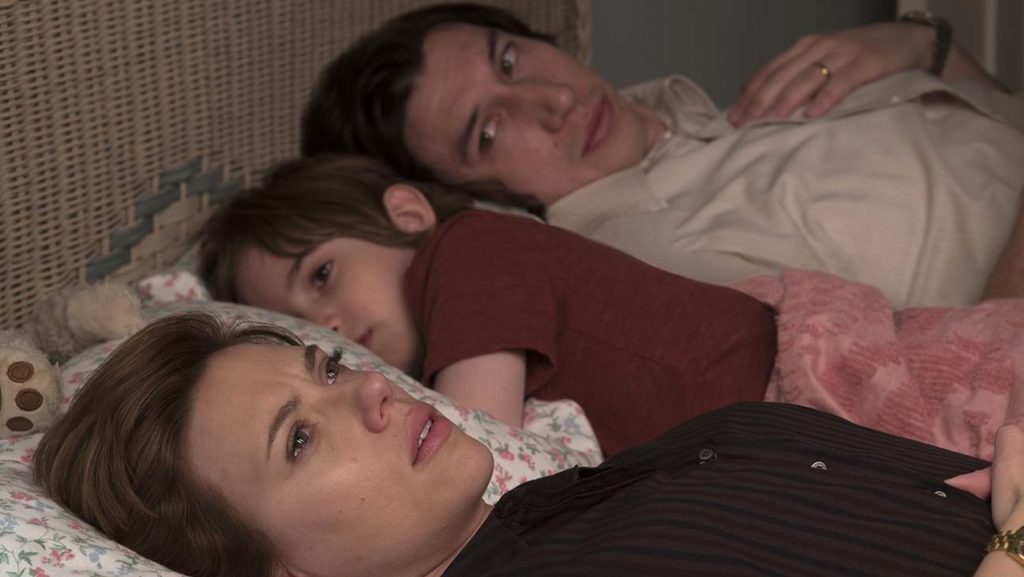
Sometimes a film slips onto my list despite unwieldy bits because of a grander whole. Such is the case with Noah Baumbach’s Marriage Story, which does not act out its title: here we are entering the end rather than the beginning, and the story itself is just that. But let’s not quibble with labels. If the film does not tell the whole story, it dwells on fissures between an avant-garde theatre director and his actor wife, performed with great spirit by Adam Driver and Scarlett Johansson. It’s hard not to feel for these two as they fall into the hole of horrific legal wrangling, and that’s the power of Baumbach’s writing and direction: this is an intimate film for adults, and no, unlike some TIFF fare, that is not a cue for wild sex on screen: the intimacy is in the shared dissolving. There are some terrific featured turns here by Laura Dern, Alan Alda, and Ray Liotta, but this film belongs to Driver, whose character appears to lose more, whether that’s intentional or just my read.
Proxima
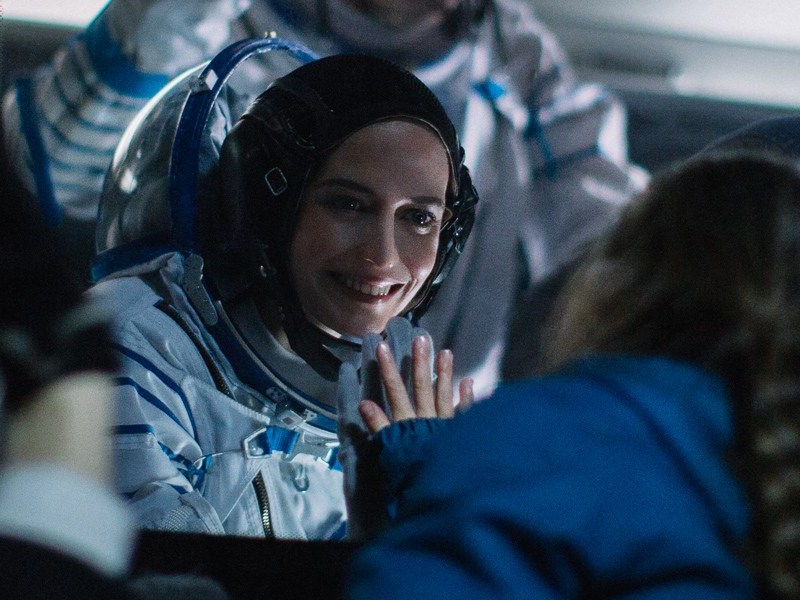
Sometimes I feel there is a different festival when I read news about TIFF. It’s all parties, stars, and sightings, and then there’s me, sitting in the dark, clutching my husband’s hand because there, right there on the big screen, is my life in a moment nobody understood. Until now. French auteur Alice Winocour’s fantastic, if flawed new film evoked the most tears for me of all the TIFF offerings this year. Eva Green plays an astronaut preparing for space travel while her young daughter stays home. Shot in real places where astronauts are training in Europe, Russian and Kazakhstan, this film was an excellent example of how many movies are made with multiple international parties. Viewers will geek out at all the phenomenal space stuff as much as the exploration of the universal parental conflict. Eva Green is spectacular here and rises above some improbable plot turns. Her scenes with her daughter are deeply affecting (don’t watch them if you’re like me, with babies now grown and flown)—in the hands of another director, it would be sentimentality. But this is the director who won a Cesar (the French Oscar) for writing the Turkish film Mustang, one of the best films in 2015.
I wanted to work with Eva Green because I think she is something like a space
Alice Winocour, director, Proximaperson-she’s not really on earth, but I also wanted an actress who could be both a warrior and a mother as I wanted to show a super heroine who is also a mother which is rarely shown on cinema as if those two states were incompatible.
Rocks

This was our first film screened, and I worried it might spoil me for the rest of the festival. Directed by British director/producer Sarah Gavron, one of many female filmmakers in this year’s festival, Rocks tells the story of a London teen who finds herself alone in caring for her younger brother as her depressive mother abandons them both. The remarkable fact? This cast was unknown: almost all newcomers and non-actors came together as a year-long volunteer workshop resulting in a sizzling script. The diverse cast sparkles: their joy on stage at the film’s premiere was contagious. This film was one of ten (including Proxima) vying for the Platform
The Sound of Metal
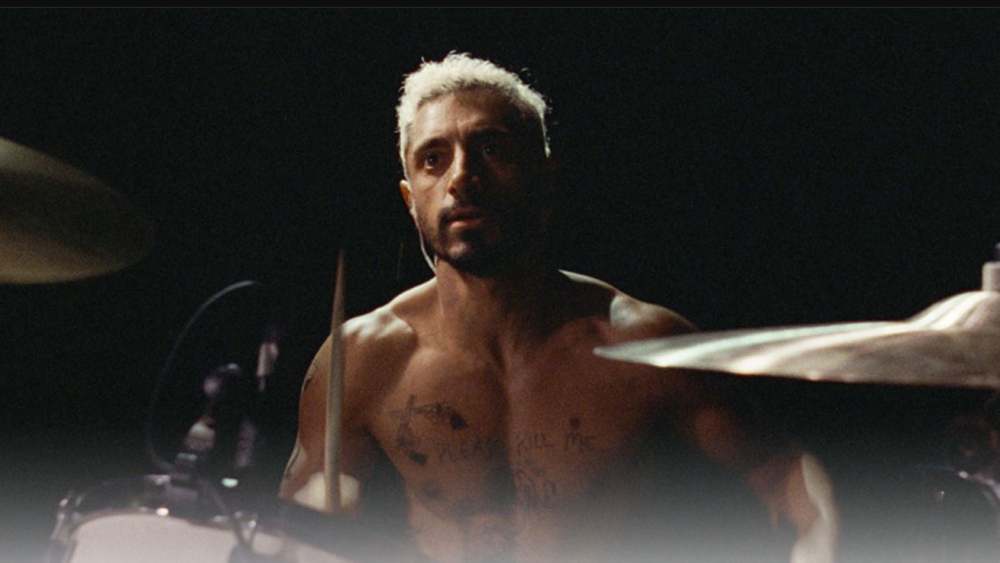
British actor Riz Ahmed is the star of this terrific film, another Platform contender at the festival: it would have been my pick to win the Platform prize. Ahmed spent six months before the film’s shoot learning to play the drums AND become proficient at sign language. He is Ruben, a former addict and musician who loses his hearing in the beginning scenes. Ahmed delivers a performance that is not as showy as other festival faves like Joaquin
Our Lady of the Nile
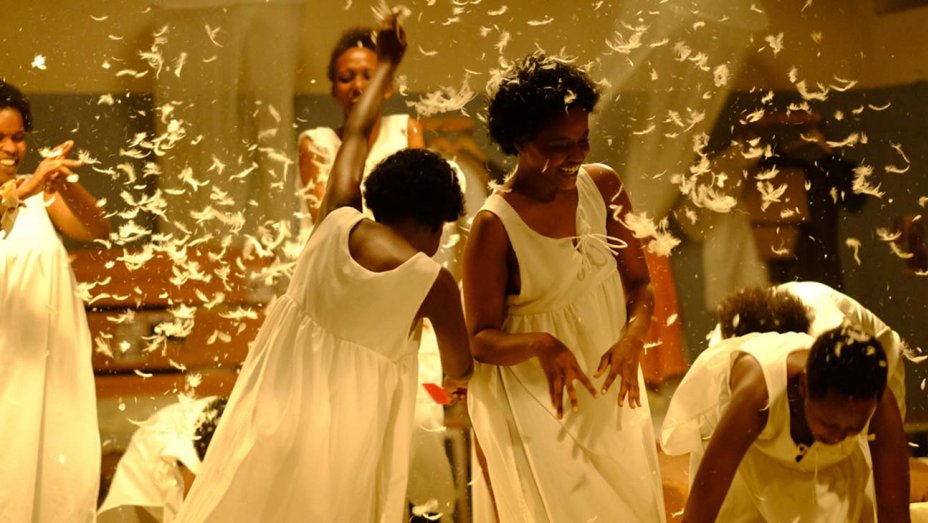
Based on the French language novel of the same name, this film by Afghan director Atiq Rahimi is set in Rwanda in 1973, twenty years before the genocide. The plot surrounds a group of Belgian-run Catholic boarding school students navigating growing racial tensions and brutal violence. What could have been a mere history lesson is instead a gripping tale thanks to powerful performances from a fantastic ensemble cast of young Rwandan actors, many of whom are acting for the first time. Like Rocks, this is a coming-of-age story but one with real foreshadowing of the horror of mass slaughter to come. Lush and genuinely cinematic, this film is the kind of essential world cinema that is why I go to TIFF.
Honey Boy
Honey Boy debuted at Sundance earlier this year and was written by actor Shia LaBeouf as part of his rehab program. I was surprised by this film and loved it for its courage. LaBeouf plays a character based on his father, while ever-busy actor-of-the-moment Lucas Hedges shares the role of the tortured son with actor Otis Lort: both are excellent. LaBeouf, however, is the reason to watch—his performance as an ex-rodeo clown felon is fascinating, given what we all know of his real-life challenges. Acclaimed documentarian Alma Har’el directs what could be just another fictionalized therapy session, but this one lands with tremendous heart and authenticity. This is one of two films I screened at TIFF about child actors (the other was Judy). Both reaffirm what I’ve always believed about kids and showbiz: rarely does it work out to be anything less than messy.
Western Stars
A friend asked me if seeing a film within the TIFF lineup rather than any time during the year makes a difference in how much I love or hate it: a fair question. A work of art on the floor in a jumble at a flea market looks much different when framed on the wall of a sexy art gallery or in a billionaire’s modern loft. Where and when you see a film matters, and where you come from directly affects your ability to absorb what you are about to see. Immersion is not the same as punctuated observations, so I prefer cinema to anything on a small screen, no matter how much I love my fam jams on the couch. I
Uncut Gems
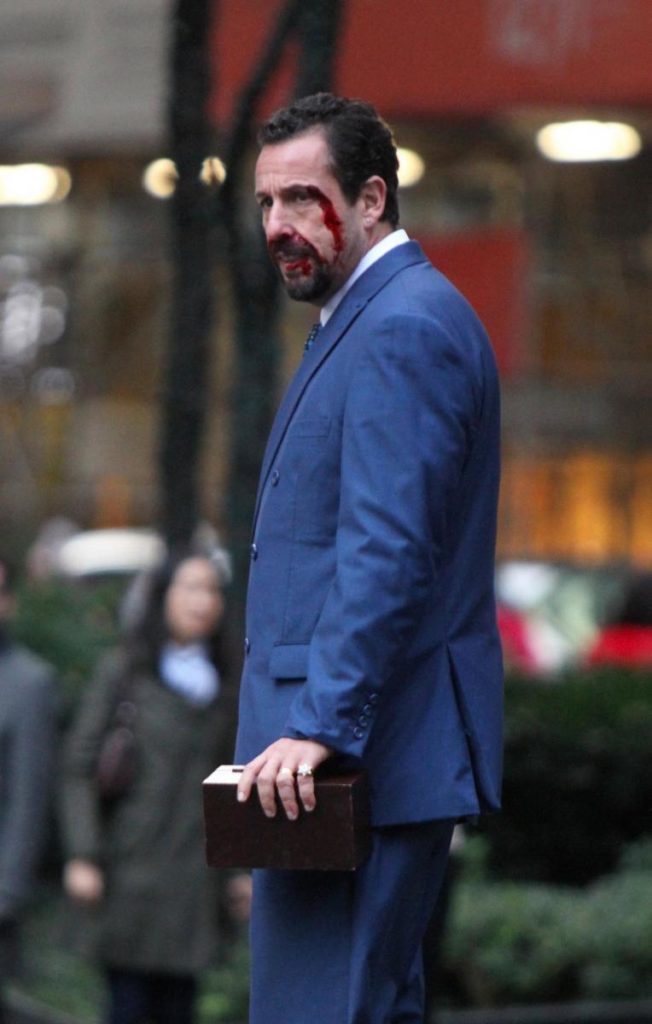
This was my final film of the festival. I found myself in a rowdy crowd wound up for something clever. Adam Sandler delivered. Gone was the goofy actor and, in his place, a brand new antihero for the ages: jewelry dealer and compulsive gambler Howard Ratner, having a panic attack that lasts the entire duration of the film. Next to Parasite, this was the closest edge-of-seat ride of all my screenings. At the helm: acclaimed filmmaking brothers Benny and Josh Safdie, who move Sandler around New York City with such a heady mix of energy that I held my breath most of the film; that is when I wasn’t laughing… or cringing. This is the very definition of gritty, and it won’t be everyone’s jam: this is one film you must carefully pick your seat in the theatre. Mine, sadly, was in the front row. Whatever you do, don’t sit too close. The basic plot: Sandler’s character gets hold of a rare Ethiopian black opal and shows it to NBA superstar Kevin Garnett: yes, the dude plays himself. Garnett becomes obsessed with the stone, but Sandler needs to auction it to pay off debts to the Jewish Mafia. That’s all I can spill without spoiler alerts. If you love basketball, there’s a good chance you’ll love this movie. There are some other familiar names onscreen, including Idina Menzel playing the disappointed wife, Canadian pop star The Weeknd, also playing himself, and Sorry to Bother You star Lakeith Stanfield in a much better role than he has in another splashy festival film, Knives Out. Uncut Gems will be in theatres this December.
Tomorrow in this space: My thoughts on more intriguing TIFF films screened that just missed my A list: Joker, Judy, Waves, Anne at 13,000 Feet, Knives Out, Martin Eden, Greed, The Personal History of David Copperfield, Sorry to Miss You, Wet Season. I will also spill what we went wrong with Just Mercy and Pain & Glory. And maybe the Friendly Greek will weigh in.

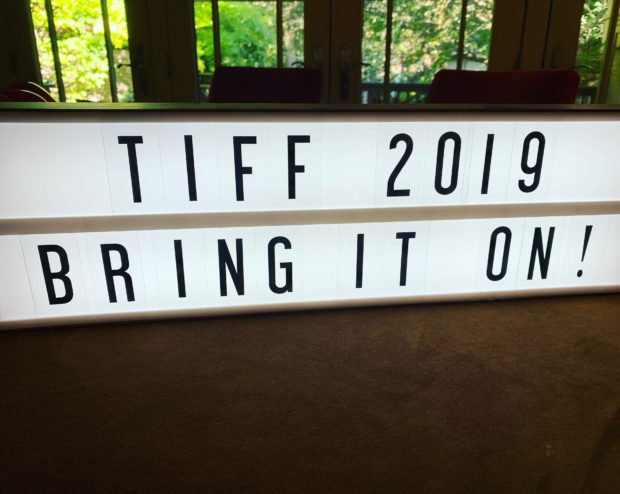

Have Your Say